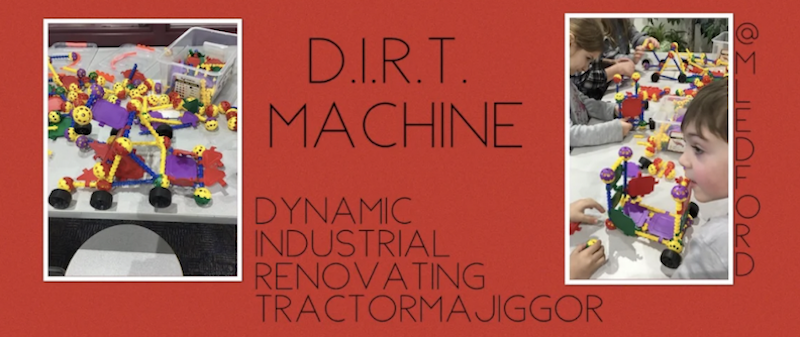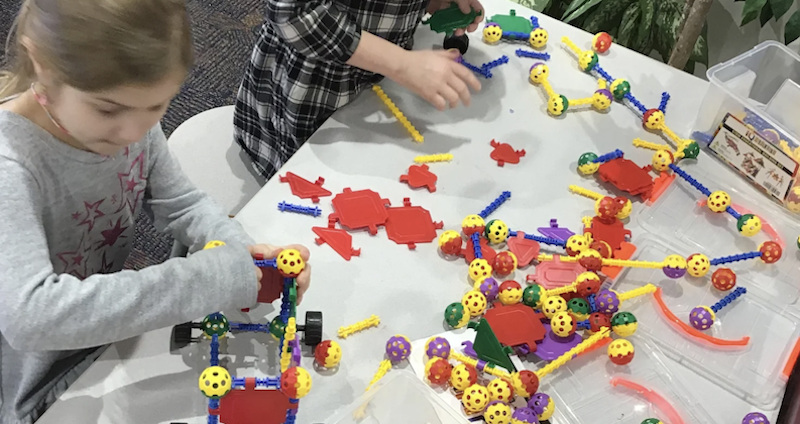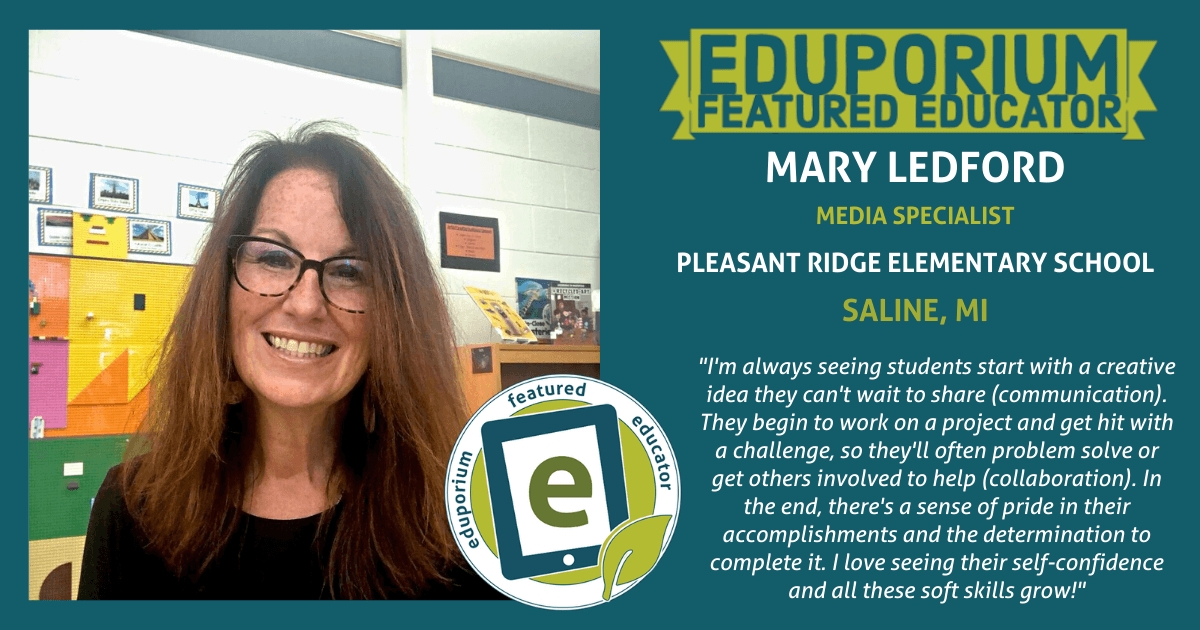It's the last month of 2021 and we're excited to introduce everyone to our latest Eduporium Featured Educator! This month, we hear from Mary Ledford, who's a media specialist at the Pleasant Ridge Elementary School in Saline, Michigan. She's found some creative ways to teach poetry and make it exciting for students while inspiring them to create technology projects using that inspiration. Over time, she's led some creative STEAM projects and come up with ingenious ways to connect these seemingly unrelated areas. Through her efforts, however, she's seen students respond enthusiastically, get excited about sharing their ideas with classmates, and look for opportunities to collaborate!
Mary Ledford
Media Specialist, Pleasant Ridge Elementary, Saline, MI
Q&A:
Please share any innovative technology project(s) you've completed with your students or plan to complete.
Poetry can be a tough genre to tackle in the classroom and in the library. The figurative language and formatting often make it difficult for younger students to understand. So, I've selected poems from my favorite authors that relate to EdTech projects to help increase comprehension in this genre. For second and third graders, I try to find poems that state facts so they can highlight them and use them as a basis to create their "coding movie." I have used poems like 'The Life Cycle of a Flower' to highlight important facts and then asked students to code those facts using Scratch Jr.

In the younger grades, I try to find poems that offer more opportunities for them to create STEM projects. Two examples are 'Why Do I Have to Clean My Room?' by Jack Prelutsky and 'The Homework Machine' by Shel Silverstein. I find these poems valuable because students can often identify with the narrator in both situations. After all, who wouldn't want a machine to clean their room or do their homework? They then get to work building their own "Dirt Machine" or "Homework Machine" like in the images above.
What is a challenge you have faced or are facing with your technology use as a STEAM educator?
What STEM resources have you used in your instruction or are in need of?
One common challenge I face is my budget! Being in the library, I'm constantly updating my book selection while weeding out the books that have been "loved" and seen better days. This can be costly and leaves little money for STEM supplies and apps for students to use. I'm always looking for durable building supplies that will last but won't be too pricey. Since I see close to 500 students, this has been a routine challenge.

What are some of the real-world or STEM skills you've seen your students develop through regular technology use?
How can students apply them in the future?
There are so many! It usually starts with a creative idea they can't wait to share with others (communication). They begin to work on their project and they get hit with a challenge, so they'll often problem solve or get others involved to help (collaboration). In the end, there's a sense of pride in their accomplishments and the determination to complete it. I love seeing their self-confidence and all these soft skills grow!
What interests you most about Eduporium's educator offerings?
I have always loved the way the Eduporium team works so hard at taking care of all those in the education community. They offer resources, lesson ideas and monthly a monthly EdTech grant. I'm always impressed with how they work so hard at trying to get products and relevant lessons in the hands of educators.
We thank Mary for taking the time to share her thoughts and pedagogical strategies with our community. As always, we hope her words can inspire other educators to try new instructional approaches. We also hope these features continue to provide value for educators and enlighten you about some of the amazing projects you could try with the resources you have. Be sure to follow us on Twitter and Instagram for more of the great things educators are doing with technology. If you'd like to apply for a chance to be an Eduporium Featured Educator, we’d love for you to fill out the application! Whether they're a STEM educator or not, we'd also encourage sharing the application with other teachers in your networks.



